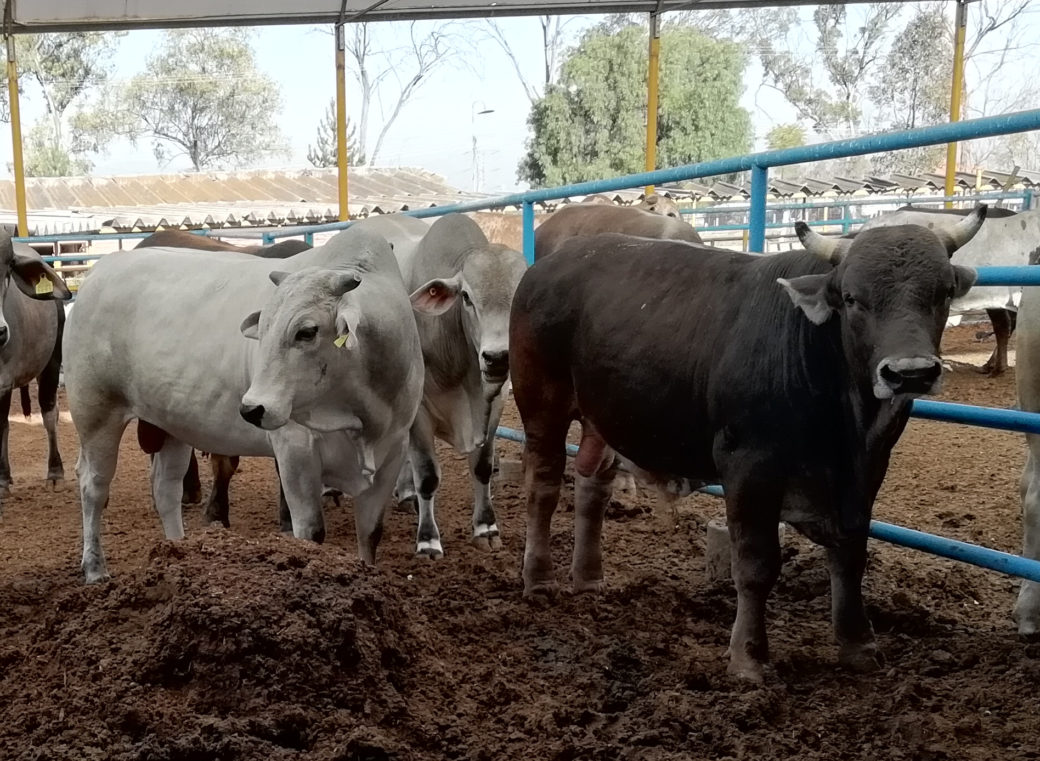Lettre de préoccupation à la Banque européenne d’investissement (EIB) l’appelant à cesser de financier la production industrielle de bétail

Plus de 20 organisations, dont la Coalition mondiale des forêts, ont transmis une lettre ouverte (ci-jointe) au Président de la Banque européenne d’investissement (EIB) l’appelant à aligner son approche financière en fonction de l’Accord de Paris et à adopter une stratégie d’élimination progressive du financement de la production industrielle du bétail et exigeant une transition vers des systèmes de production alimentaire qui soient respectueux de la santé, des animaux, socialement justes, et dont le niveau d’émissions de carbone soit faible.
Continuez à lire en anglais…
Considering the threat of the climate emergency, the shocking levels of forest destruction for livestock and feedstock production and the imperative to “build back better” following the global pandemic, it is vital that the EIB follow through with these actions. For a future that protects and sustains all livelihoods globally, there is no reason to finance unsustainable livestock production.
Letter of concern
Dear Mr. Hoyer,
In a time of climate crisis, public finance institutions such as the European Investment Bank have an urgent responsibility to align their lending with the goals of the Paris Agreement. The EIB Group has taken an important step by drafting its Climate Bank Roadmap 2021-2025. But, as calls come from economists and environmentalists alike to “build back better” following the pandemic, we strongly urge the EIB to increase its ambition regarding reducing emissions from the agricultural and livestock sectors. The EIB should not finance industrial livestock production and should increase its support for a transition to healthy, socially just, low-carbon and animal friendly food production systems.
Experts project that the livestock sector will account for almost half (49%) of the world’s emissions budget for 1.5°C by 2030, and 80% by 2050. Increased deforestation for cattle ranching and feed grains in the Global South, as illustrated by the rapidly-increasing deforestation rates in the Amazon and other biomes, is contributing significantly to increased greenhouse gas emissions at a time when the Intergovernmental Panel on Climate Change (IPCC) suggests that ecosystem restoration is critical to keeping warming to 1.5°C. These trends are also exacerbating existing inequalities as Indigenous Peoples and local communities face displacement, criminalization and violence, impacts which are felt disproportionately by women. Therefore, continuing with business-as-usual is clearly not an option.
To meet the steep and rapid reductions in greenhouse gas emissions necessary to achieve the goals of the Paris Agreement, and to ensure that human rights are protected by reducing the pressure on land and landgrabbing, global livestock numbers need to fall substantially.
Unfortunately, the EIB’s Climate Bank Roadmap 2021-2025 Position Paper does not show the level of ambition required to make these numbers fall. It relies mainly on increased productivity, reduced food waste, an aging population and on labeling requirements to achieve this, but these factors are unlikely to be enough to achieve significant change.
In fact, from both the EIB’s Position Paper and the stakeholder webinar held on June 25th, it is clear that the EIB intends to continue to finance industrial livestock, suggesting this is needed to guarantee food security, for healthy diets, for rural economies and for lower emissions. However, doing so will achieve none of the above:
FOOD SECURITY
The industrial livestock sector is actually a threat to food security. It produces far less calories or proteins per hectare than the production of pulses does and is therefore an inefficient way to produce food for the world. In many places, the industrial production of livestock or feed encroaches on the lands of local communities, threatening their ability to produce their own food. Furthermore, due to the high emissions associated with the sector, it contributes to climate change which further reduces the resilience of food production systems. Livestock rearing can indeed be important to guarantee food security and extra income for rural communities. But these communities generally rear livestock under pastoralism or small-scale practices and typically do not operate industrial livestock operations. Nor are they very likely to become beneficiaries of the EIB. Therefore, as much as we appreciate the EIB’s wish to support food security in rural communities, it should not finance large agro-industrial livestock sector corporations, which have huge social and environmental impacts, among which is a reduction in rural food security.
RURAL ECONOMIES
The industrial livestock model comes at the expense of small-scale producers and cultural practices, such as pastoralism and agroecology. While small producers can rarely access funding for their activities, they are locked into a system that internalizes profits but externalizes social costs. Funding big livestock operations will only increase the problems, instead of stimulating a transition. The industrial livestock sector, and the associated feed producing sector, also create far fewer jobs than other more sustainable agroecological production systems. As Covid-19 has shown, many jobs created by the livestock sector, such as work in slaughterhouses, actually pose an unacceptable health risk to the workers.
HEALTHY DIETS
There is ample scientific evidence that shows that a predominantly plant-based diet can meet all the required dietary guidelines. These diets are often more balanced and healthier than meat- based diets. Unfortunately, the EIB’s Position Paper did not take a plant-based diet into account in its simulations. The IPCC Special Report on Land also points out that balanced diets featuring plant-based foods, such as coarse grains, legumes, fruits and vegetables, nuts and seeds, and animal-sourced food produced in resilient, sustainable and low-GHG emission systems, present major opportunities for adaptation and mitigation while generating significant co-benefits in terms of human health.
LOWER EMISSIONS
Paragraph 3.101 of the Position Paper states that the land use, land-use change, and forestry (LULUCF) sector in the EU is a net carbon sink, but worldwide this is certainly not the case. The LULUCF sector is a major contributor to GHG emissions. A large part of this comes from the livestock sector and from the feed sector which is closely linked to it, as the vast majority of soy produced is used as animal feed. The production of soy and beef are the main drivers of deforestation in countries such as Brazil, Paraguay and Argentina (all Mercosur countries). The EU is a major importer of feed and animal products from continents such as South America, which makes it responsible for the associated emissions.
Financing the industrial livestock sector is financing climate change, human rights violations, deforestation and biodiversity loss, in contradiction with the goal of the EIB’s Climate Bank Roadmap. To truly meet the level of ambition necessary, it must take seriously the intent to redirect financial flows away from industrial livestock and instead ‘support transitions towards low-carbon and climate resilient sustainable development’, in the words of the joint International Development Finance Club (IDFC) and the Multilateral Development Banks (MDBs) statement in alignment with the Paris Agreement.
We cannot delay reaching ‘peak livestock’ any longer. To align finance with the Paris Agreement, we ask the EIB to:
- Commit to a strategy to align investments with ‘peak livestock’, ensuring an end to all financing in support of any industrial meat (including pigs, chicken and farmed fish), dairy and egg production, and feed production.
- Ensure that investments are in line with human rights obligations and redirect financial support to sustainable, climate-resilient, agroecological production that contributes to rights-based ecosystem restoration, the economic well-being of rural producers and workers and the welfare of animals, while contributing to climate change mitigation and adaptation.
Earlier this month, 30 NGOs asked the same in an open letter to the International Finance Corporation (IFC) and European Bank for Reconstruction and Development (EBRD), in response to a report by the Bureau of Investigative Journalism and The Guardian, which found that development banks have invested billions of dollars into the meat and dairy industries, despite their vast contribution to the ongoing climate catastrophe.
Agreeing to these two actions would not only shift billions of dollars in unsustainable finance towards equitable climate solutions, they would also reduce transition risk for EIB client countries. As the IPCC puts it, industrial livestock production faces the greatest risks from climate breakdown. Leadership on this issue from the EIB would send a clear signal to other public finance institutions, the private sector, markets, and governments to follow suit and help ensure that bank portfolios are working towards, and not against, a more equitable, just, sustainable and transformative food system.
The undersigned
- A Well-Fed World
- ActionAid
- ARA
- Brighter Green
- Censat Agua Viva
- Compassion in a World Farming
- Factory Farming Awareness Coalition
- Farm Forward
- Feedback Global
- Four Pawns
- Friends of the Earth US
- Friends of the Siberian Forests
- Global Forest Coalition
- Greenpeace
- ProVeg
- Sinergia Animal
- Society for Conservation and Sustainability of Energy and Environment in Nigeria
- Support for Women in Agriculture and Environment
- The GreenBaum Foundation
- Vegetarianos Hoy
- World Animal Net










